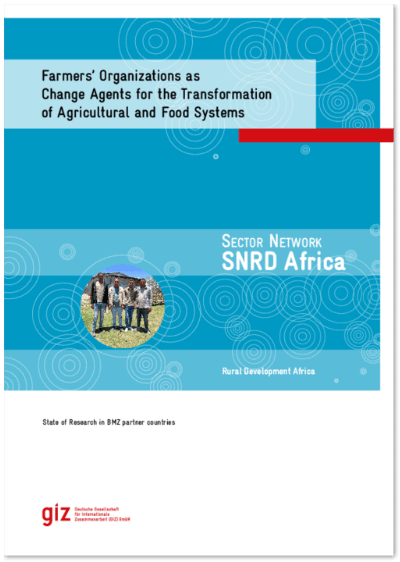Jana Rauch
Farmers and their organizations are essential partners in driving transformation since they are at the heart of agricultural and food systems. This Policy Brief highlights the state of research literature on the contribution of farmers’ organizations (FOs), both cooperatives and associations, to rural development and especially to their members on individual and organizational level. By providing marketing and extension services, skills development as well as financial services, they support their members’ income and yield increase. As civil society actors, FOs promote democratic engagement and offer farmers the opportunity to participate in political processes. Thus, FOs contribute to the improvement of political and structural framework conditions as well as on-the-ground changes in food production. They are applying agroecological principles needed for the protection of the climate and natural resources. However, through internal organizational weaknesses, scarce financial resources, and policy failure the impact potential of FOs can be limited. To be effective, FOs need systemic organizational development, competent leadership, better inclusion and improved political participation of women and youth, sustainable internal financial resources, and inclusion in political-strategic decision-making at all levels. Strong FOs at local, national, regional, and global levels can not only contribute to the well-being of individual farmers in BMZ partner countries, but also drive the transformation of current agricultural and food systems. Governments and development cooperation can better leverage this potential by recognizing and supporting FOs in their role as mediators between people and politics.
Complete publication on www.giz.de [PDF; 1,2 MB]
